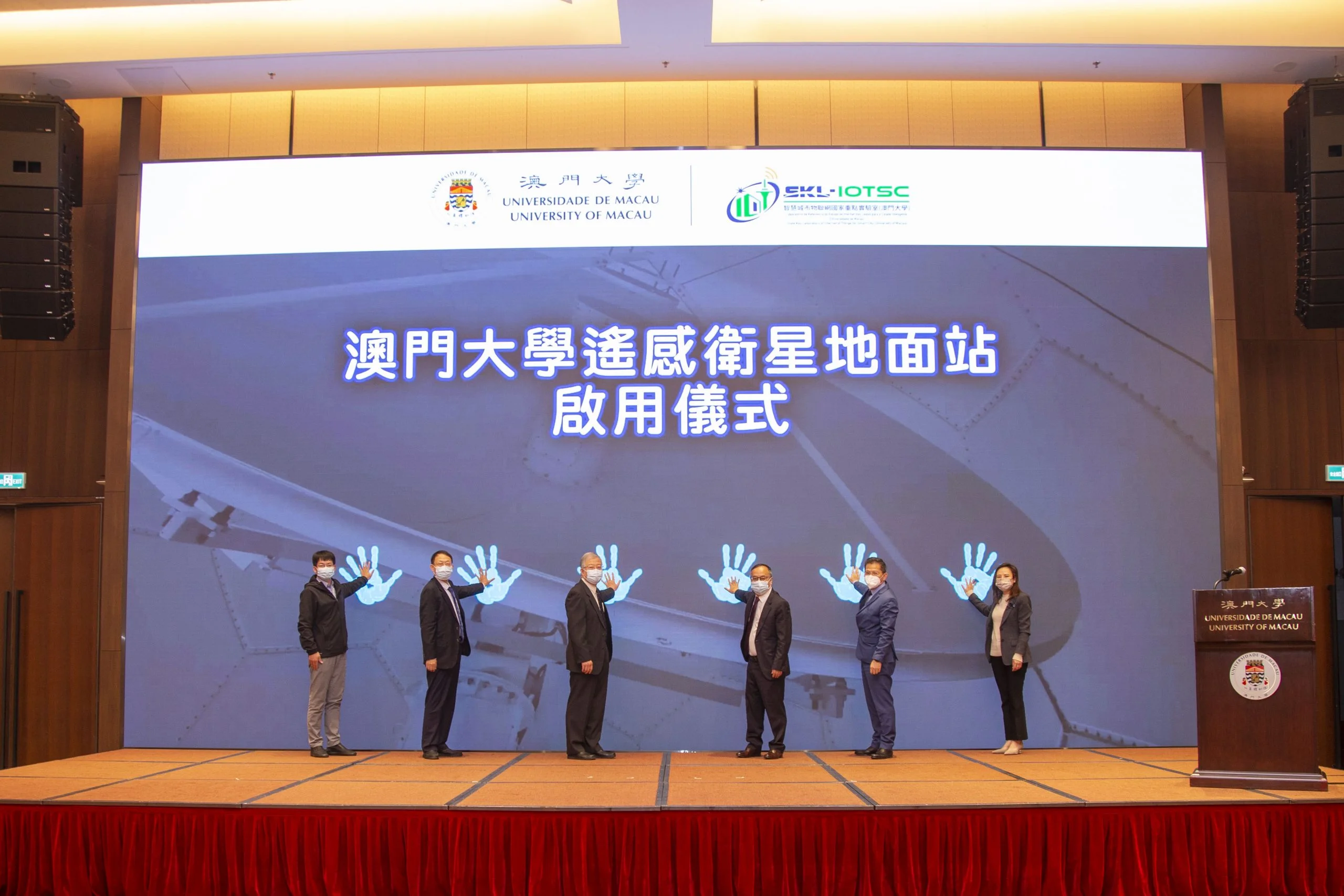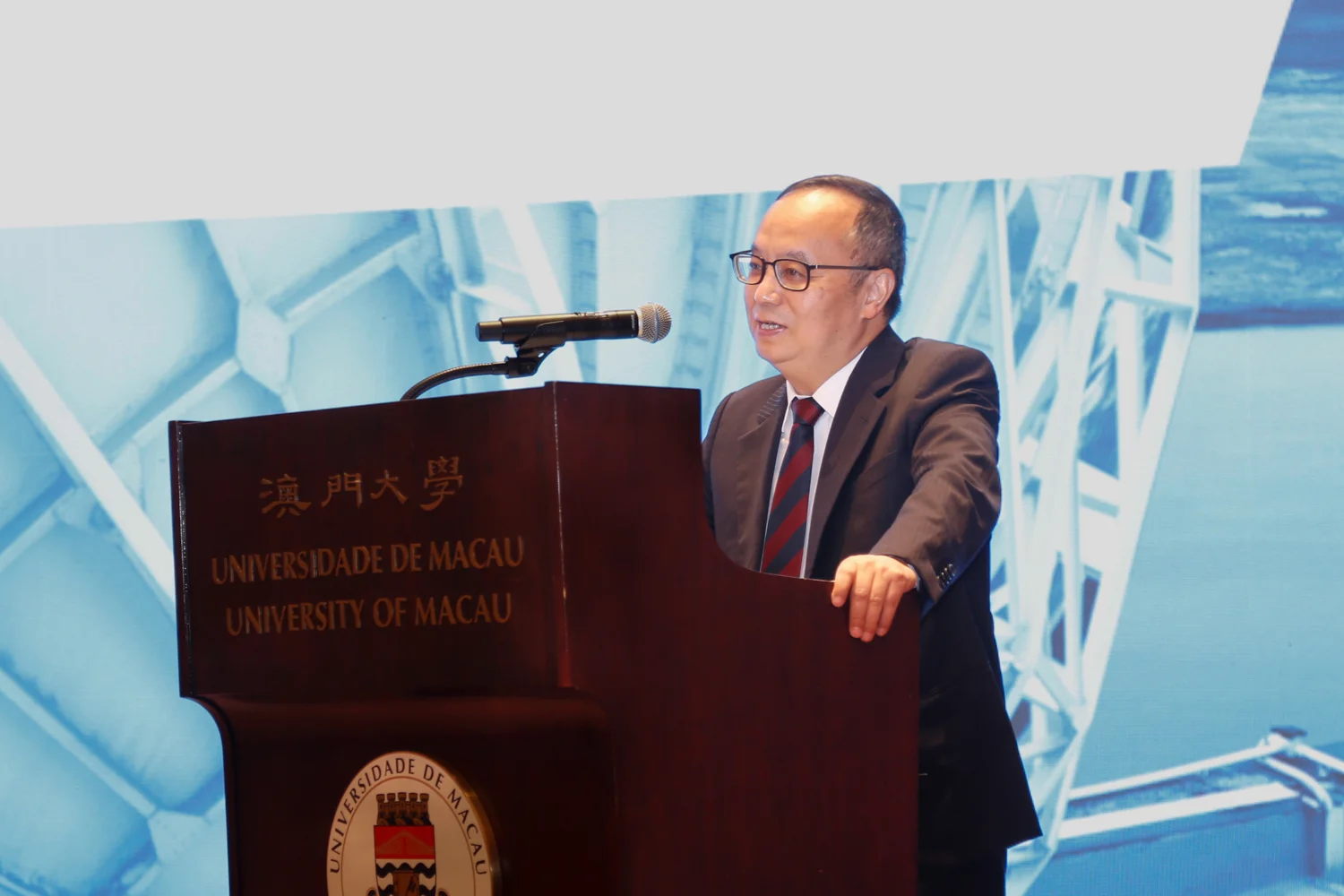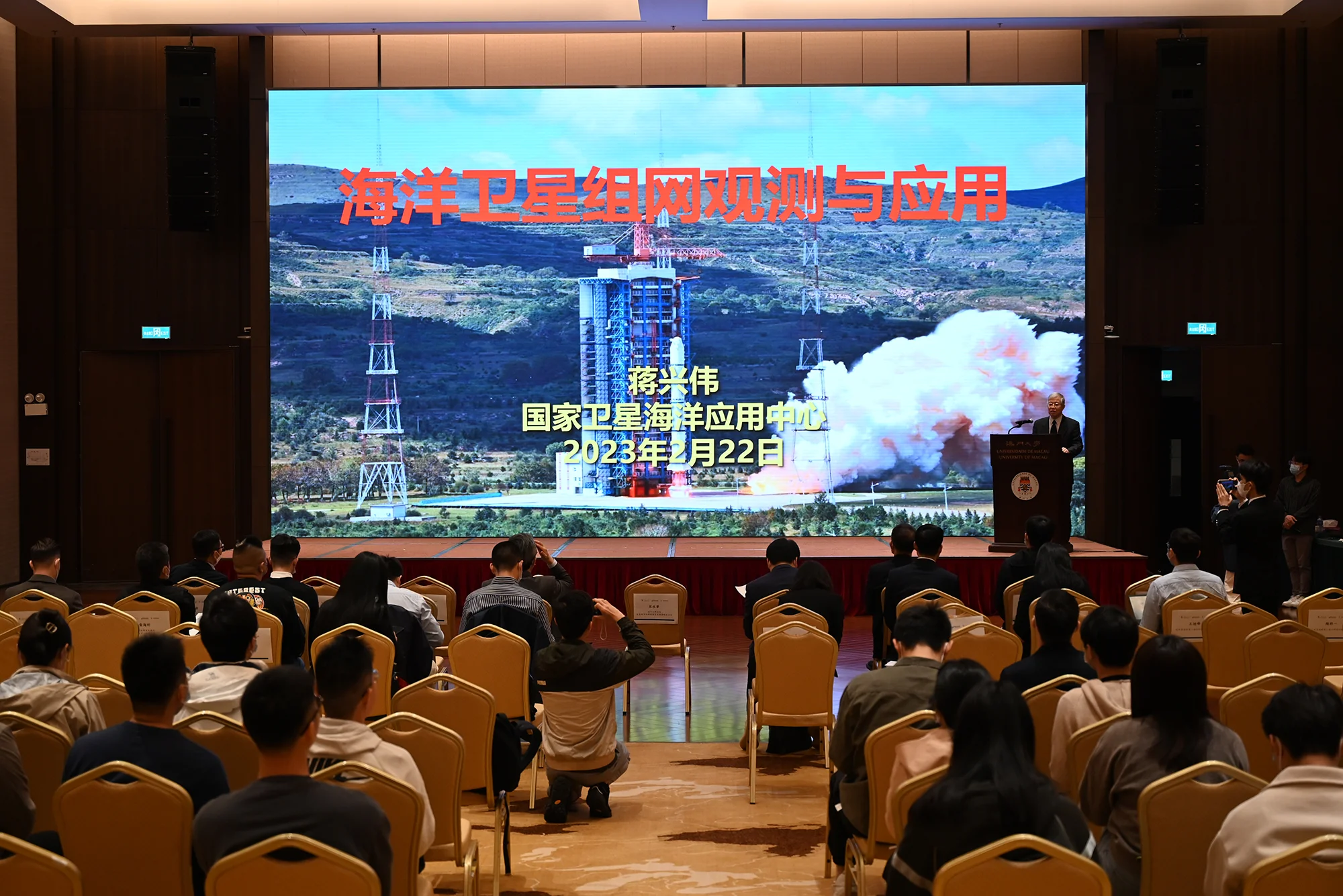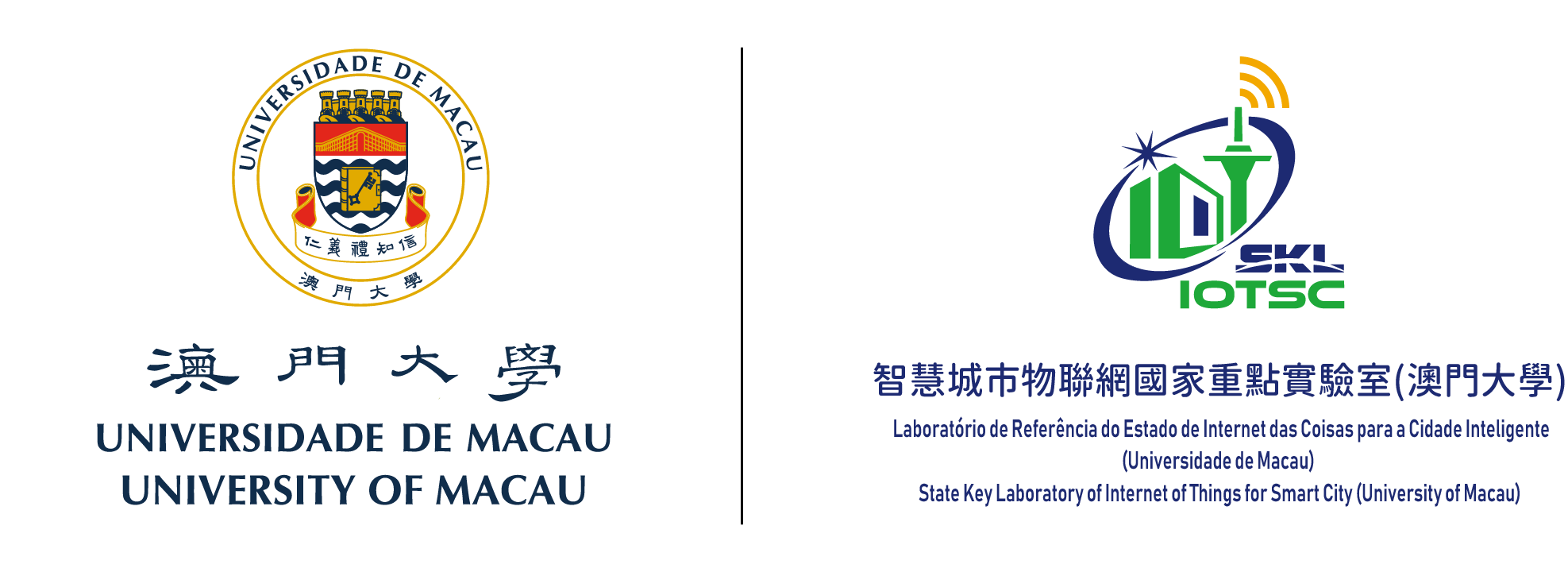The Inauguration Ceremony of the Satellite Ground Station of the University of Macau (UM) and Symposium on Disaster and Ocean Remote Sensing Technologies was recently held at UM. The event was organised by the State Key Laboratory of Internet of Things for Smart City (SKL-IOTSC) of UM, with assistance from the Department of Ocean Science and Technology of UM’s Faculty of Science and Technology (FST), the Aerospace Information Research Institute of the Chinese Academy of Sciences (CAS), and the State Key Laboratory of Satellite Ocean Environment Dynamics (Second Institute of Oceanography of the Ministry of Natural Resources). The symposium attracted many experts and scholars from mainland China, who during the event discussed innovations in remote sensing technology and their applications in urban disaster prevention and marine environment protection.
In his speech, Yonghua Song, rector of UM and director of the SKL-IOTSC, said that the university has been active in promoting marine research and using advanced theories and technologies in interdisciplinary fields, such as Internet of Things, big data, artificial intelligence, and satellite remote sensing, to identify, monitor, and predict natural disasters in coastal cities and conduct research on disaster prevention and mitigation measures. The university also established the Department of Ocean Science and Technology under the FST last November to further promote marine research in Macao. According to Song, the remote sensing satellite ground station can receive data from meteorological satellites and high-definition satellites, which greatly improves the observation accuracy for detecting key elements of disasters and regional detection capability. The establishment of the station also marked the deep integration of marine science, Internet of Things, and remote sensing technology, and he expected the station to further optimise the university’s resources and provide real-time and high-precision data for future studies on topics such as climate change, typhoons and rainstorms, the marine environment, and air pollution in coastal cities, thus contributing to the development of urban public safety systems.
The keynote speakers at the symposium were Jiang Xingwei, member of the Chinese Academy of Engineering and researcher of the National Satellite Ocean Application Service; Gu Xingfa, director of the National Engineering Research Center for Remote Sensing Satellite Applications of CAS and researcher of Aerospace Information Research Institute of CAS; and He Xianqiang, deputy director of Donghai Laboratory and researcher of the Second Institute of Oceanography of the Ministry of Natural Resources. During the event, experts and scholars in the field of remote sensing discussed theoretical innovations in the field and their practical applications in urban disaster prevention and marine environment protection. The event aimed to promote resource sharing and deepen cooperation and exchanges between mainland China and Macao, so as to contribute to the sustainable development of the marine environment.
Officiating guests at the inauguration ceremony included Cheang Kun Wai, member of the Administrative Committee of the Macao Science and Technology Development Fund, and Ip Chong Wa, member of the Administrative Committee of the Macao Post and Telecommunications Bureau. Other guests attending the event included Leong Weng Kun, director of the Meteorological and Geophysics Bureau, as well as representatives of the Marine and Water Bureau and the Environmental Protection Bureau.

The inauguration ceremony

Yonghua Song

Experts discuss remote sensing technologies

